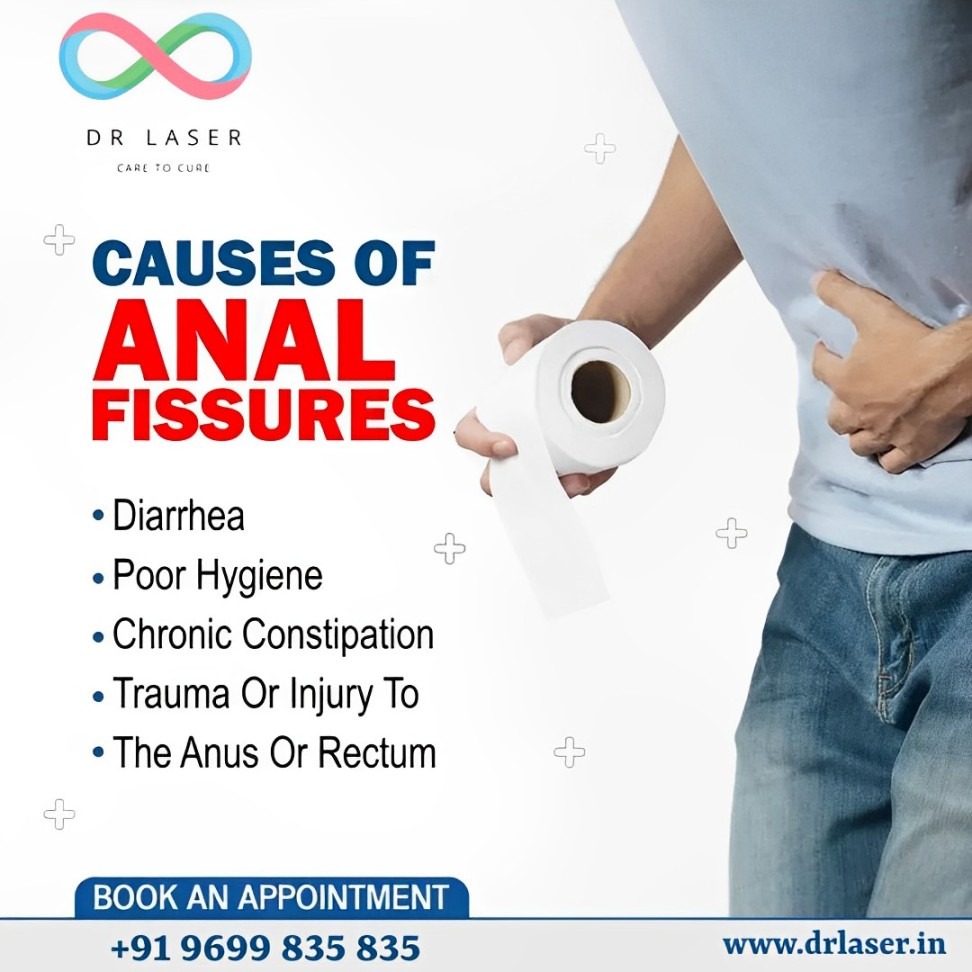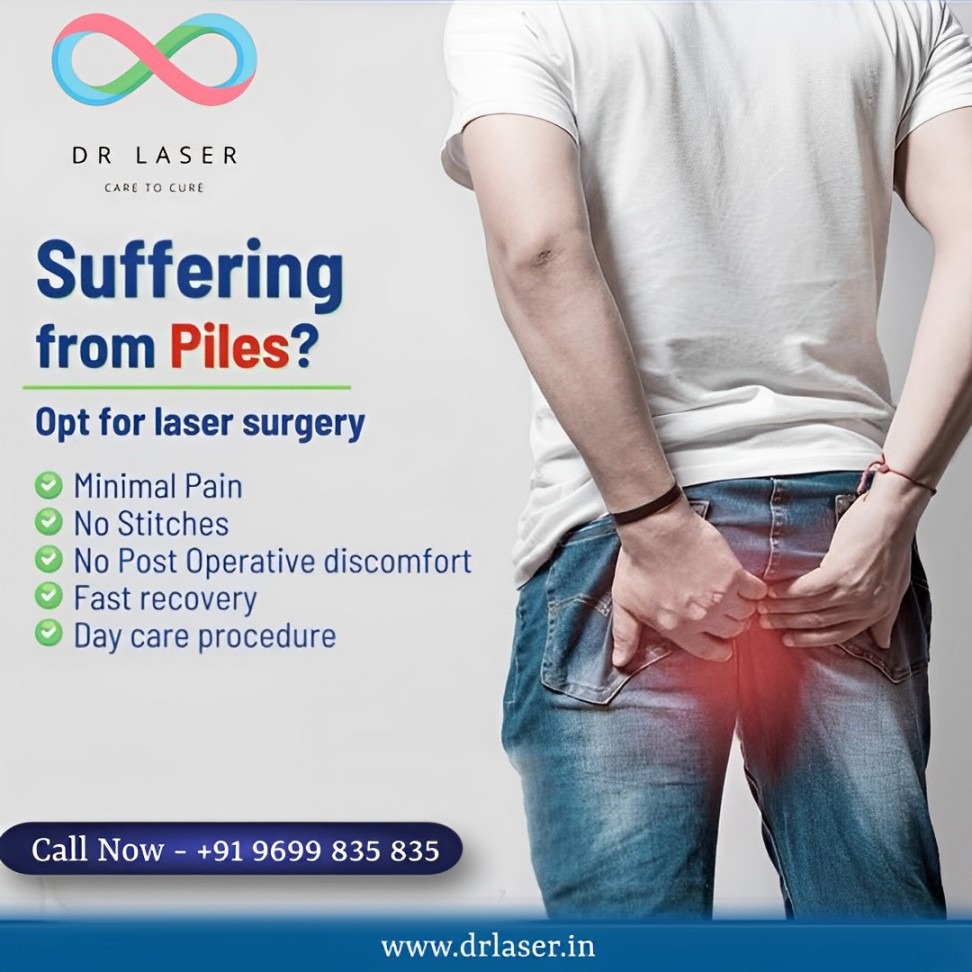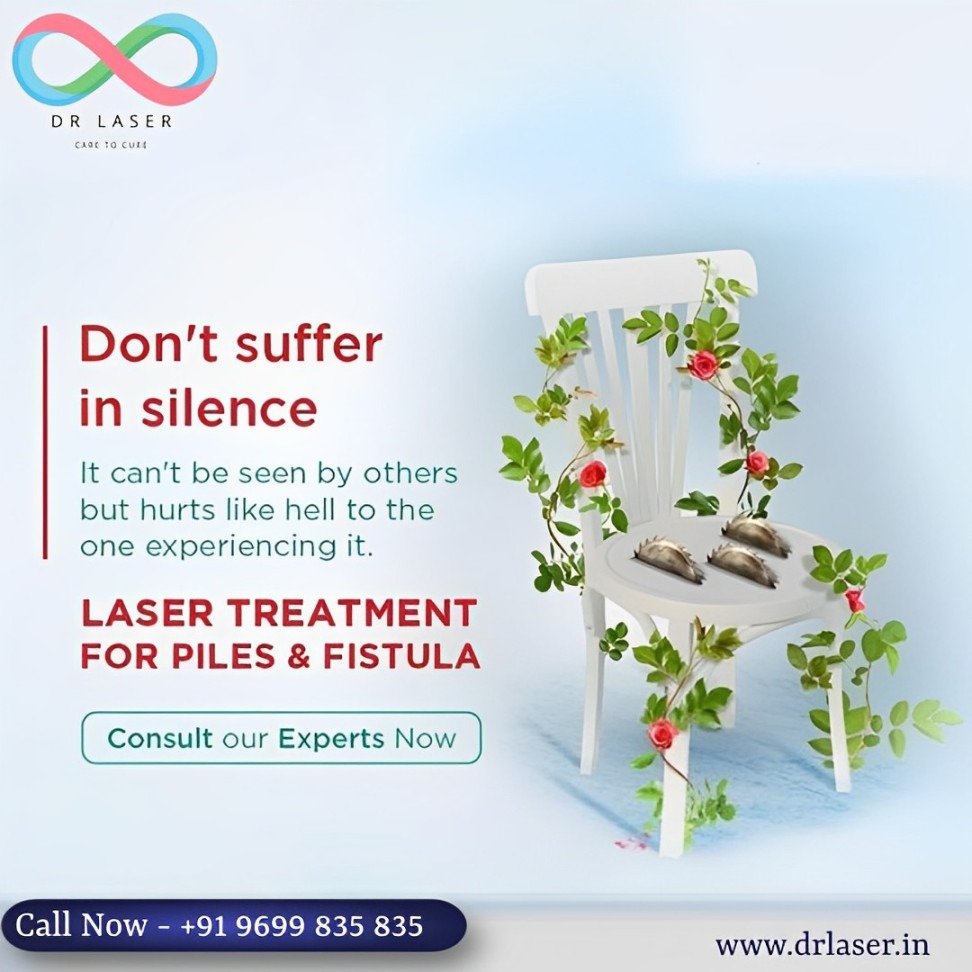What is Anal Fissure?
It is a cut, ulcer or tear in the wall of the anus at its outer border.
What are the symptoms of anal fissure?
- Pain: Severe tearing, cutting or pricking pain while passing stools followed by burning pain after passing motions, which may last for a few minutes to few hours
- Bleeding: bright red blood streaks are seen on the stool bolus &/or on the toilet paper. Later fresh blood drops after motions.
- Constipation: hard stools are responsible for the tear.
- Straining: the anal opening goes into reflex spasm and it becomes very difficult to pass hard stools through this narrowed anal opening thereby causing a tendency to strain or push the stools out – which in turn only increases the agony.
- Swelling: a skin tag is developed at the rim of the anal opening at a later stage and it remains outside (does not go back inside the anus). These skin tags may swell, get thrombosed (blood clots) or get infected by the bacteria which persist in the crack of the fissure even after cleaning the anus after toilet.
- Generalized weakness: due to blood loss and severe pain, patients feel weak.
What are the causes of anal fissure?
Hard stools when forced out of the anal opening (while straining at motions) causes stretching of the anal beyond its capability thereby causing the crack or tear = fissure.
It occurs at the front & back ends (12 o’clock & 6 o’clock position) of the anus. This is because these areas have relatively less blood supply and the wall does not have good support.
Diarrhea: stools come at a very high speed in diarrhoe. The patient tends to control this by contracting or narrowing his anal opening. Thus rapid stools passing through narrow passage causes the tear leading to anal fissure.
Abnormal cases: anal instrumentation &/or anal sex are one of the causes of developing anal fissures in homosexuals and un-conventional sex maniac people.
Quacks: or unqualified ‘specialist’ for piles offering ???101% guaranteed treatment without operation apply strong corrosive chemicals which may cause anal fissure & in long term it may also cause cancer.
How can I prevent anal fissure?
For adults: avoid straining when passing stools.
Avoid constipation by high fibre diet and plenty of liquid intake
Prompt treatment of diarrhea or constipation
Careful anal hygiene by using water or soft toilet paper for cleaning
For Infants: change the diapers frequently.
Treat diarrhea promptly
Ensure that the infant is drinking enough fluids.






